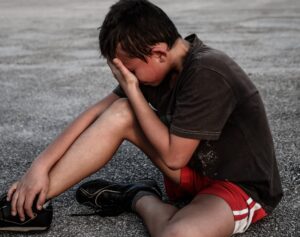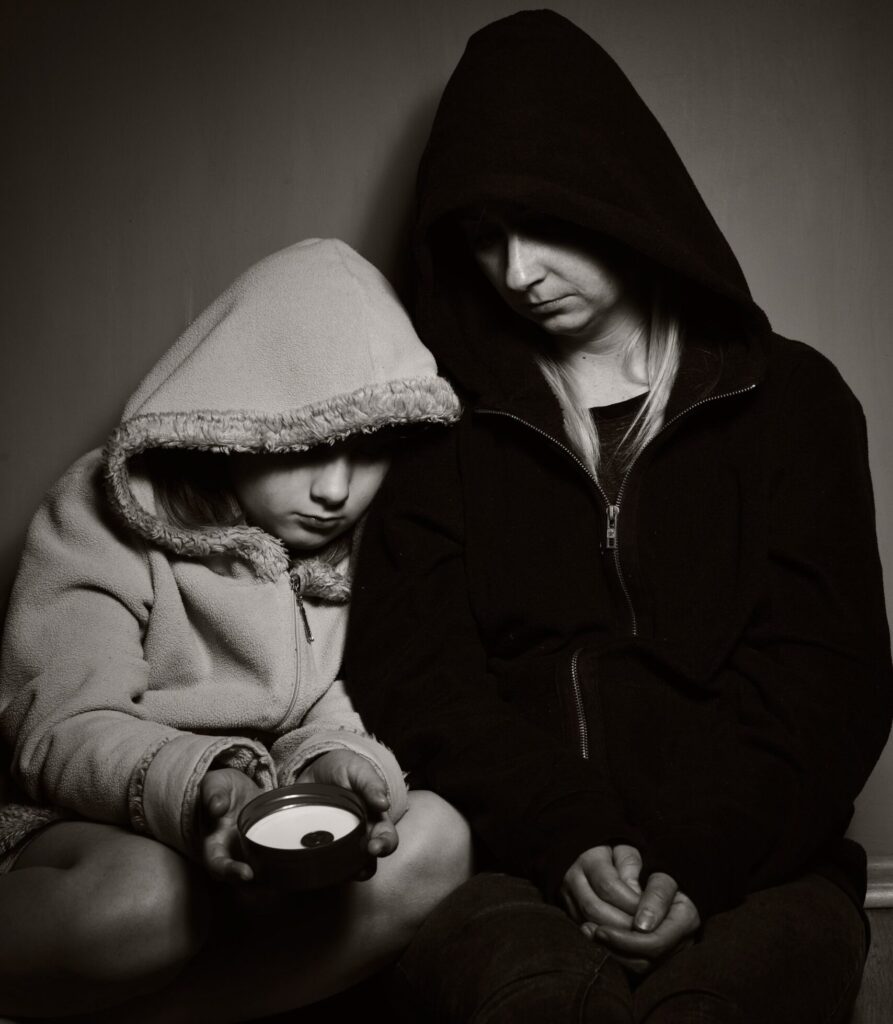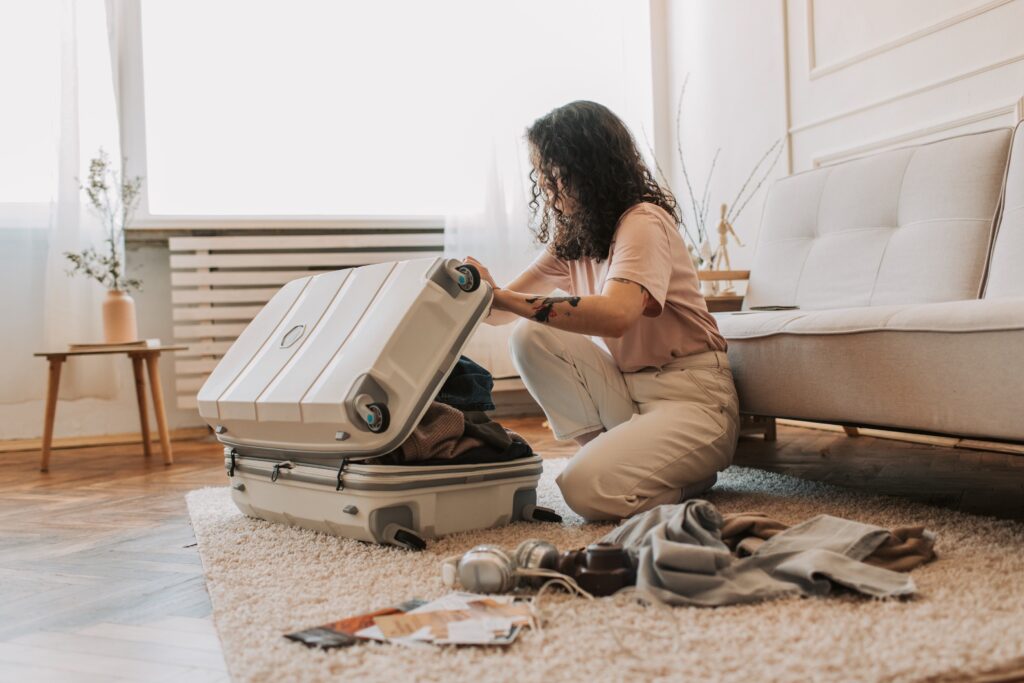Our Cause
The Family Violence Housing Issue
Currently the emergency and refuge family violence housing in the Swan Hill, Gannawarra and Buloke Local Government Areas (LGAs) constitutes a mix of motel and caravan park accommodation and only one three-bedroom house in Swan Hill where services cannot visit the victim-survivor. Instead, the victim-survivor must leave the safe house to attend any support service appointments.
As a result victims escaping family violence in the Swan Hill, Gannawarra and Buloke targeted LGAs are left with little choice but to relocate to crisis housing in other Local Government Areas, enter ad hoc accommodation, descend into homelessness, or return to violent homes.
These target LGAs are serviced by the Southern arm of the Mallee Domestic Violence Services (MDVS). The Southern MDVS Outreach staff can currently spend hours ‘ringing around’ for local crisis accommodation for an individual or family escaping violence. If this need for crisis accommodation coincides with a significant local event (such as sporting competitions), the risk is that there will be no accommodation available for our families.
“Our local motels go above and beyond to support our families at their crisis point, but motel rooms are not a long-term recovery solution for victims of family violence.”
Trish Polglase, Unit Manager – Southern Mallee.
Mallee Sexual Assault Unit Inc.
Mallee Domestic Violence Services
The nearest purpose-built family violence refuges are in Mildura and Bendigo, and it is here that our families must go to access appropriate and longer-term crisis and refuge accommodation. This relocation isolates our families from their support networks – their families, friends, services and schools. For example, the city of Swan Hill is 225 km from Mildura and 190km from Bendigo.
We know firsthand from our local victim-survivors, from international research and more than a decade of National and State Commissions and Inquiries that the victims fleeing family violence recover more quickly when they stay in their communities and connected to their support networks.
Currently, we are unable to provide this critical housing support in the LGAs of Swan Hill, Gannawarra and Buloke.
Family Violence Data
Family Violence data is ‘measured’ through several key services for victims – most notably Victoria Police and Family Violence Specialist Services. For the Swan Hill, Gannawarra and Buloke LGAs Family Violence Specialist Services are provided by Mallee Sexual Assault Unit Inc. Mallee Domestic Violence Services (Southern).

- 603 Family Incident reports for the Swan Hill LGA,
- 202 Family Incident reports for the Gannawarra LGA, and
- 55 Family Incident reports for the Buloke LGA.
- Swan Hill – 33.3% (201 incidents)
- Gannawarra – 22.8% (46 incidents)
- Buloke – 27.3% (15 incidents)
Family Incidents
A Family Incident occurs when an incident attended by Victoria Police requires a Risk Assessment and Risk Management Report (an L17 form) be completed. The report can include family incidents, interfamilial-related sexual offences, and child abuse.
Compared to their Victorian peers, the Swan Hill and Gannawarra LGAs both experience higher rates of reported Family Incidents. Data for 2019-2020 is presented below.
Across Victoria Family Incidents occurred at a rate of 1,315.4 per 100,000 population in 2019-2020. By comparison:
- In the Swan Hill LGA Family Incidents occurred at a rate of 2,929.3 per 100,000 population, and the LGA ranked fifth (5) highest amongst the 79 Victorian LGAs.
- In the Gannawarra LGA Family Incidents occurred at a rate of 1,932.6 per 100,000 population, and the LGA ranked 17th (17) highest amongst the 79 Victorian LGAs.
- In the Buloke LGA Family Incidents occurred at a rate of 904.0 per 100,000 population, and the LGA ranked 66th (66) highest amongst the 79 Victorian LGAs.
Note that although incidences recorded in Buloke LGA appear to be fewer, Buloke LGA is serviced by the Mallee Domestic Violence Services; thus, would access the proposed emergency family violence accommodation.
https://www.crimestatistics.vic.gov.au/family-violence-data-portal/family-violence-data-dashboard/victoria-police (accessed 15/04/2021)
https://www.crimestatistics.vic.gov.au/family-violence-data-portal/family-violence-infographics/victoria-police-family-violence-incidents (accessed 21/04/2021) (full data available in Table 1, Appendix 1).
*Although incidences recorded in Buloke LGA appear to be fewer, Buloke LGA is serviced by the Mallee Domestic Violence Services; thus, would access the proposed emergency family violence accommodation.
Family Violence Specialist Services
The Family Violence Specialist Services data for Swan Hill, Gannawarra and Buloke’s Local Government Areas [LGA] reiterate the gravity of the issue. Specialist Family Violence Service clients are victims of family violence seeking a range of services [list].
Significantly, compared to their Victorian peers, the Swan Hill and Gannawarra LGAs both experience higher assistance rates to clients of Family Violence Specialist Services in the 2019-2020 reporting period.
Across Victoria assistance to clients of Family Violence Specialist Services occurred at a rate of 557.9 per 100,000 population in 2019-2020. By comparison:
In the Swan Hill LGA rates of assistance were 1,471.9 per 100,000 population, and the LGA ranked first (1) amongst the 79 Victorian LGAs.
In the Gannawarra LGA assistance to clients of Family Violence Specialist Services occurred at a rate of 1,004.6 per 100,000 population, and the LGA ranked fifth (5) amongst the 79 Victorian LGAs.
In the Buloke LGA assistance to clients of Family Violence Specialist Services occurred at a rate of 312.3 per 100,000 population, and the LGA ranked 57th (57) amongst the 79 Victorian LGAs
Full data available in Table 3

Data drawn directly from Mallee Domestic Violence Services’ Specialist Homelessness Information Platform provides an accommodation report for services delivered to the LGAs of Buloke, Gannawarra and Swan Hill.
For the 2020 year, the service instigated housing support averaging 27.5 distinct stays for a total of 292.5 ‘bed nights’ every quarter (every three months).
In real terms, this means the service is seeking accommodation for victims escaping family violence every 3.3 days and those stays last an average of 10.6 nights.
Full data available in Table 4
The Human Face
We can no longer ignore the prevalence or severity of family violence across our communities.
In Australia, we know that on average, one woman a week is murdered by her current or former partner. This understanding makes purpose-built crisis housing especially critical as most of these murders occur in the weeks and months immediately after separation.
The Victorian Systemic Review of Family Violence Deaths between 1 January 2011 to 31 December 2015 found 42.1% of family violence intimate partner homicide incidents in Victoria involved individuals who had separated, 23.7% of these in the three months preceding their death, and 15.8% involved individuals with intention to separate or separation pending.
The data confirms what family violence victim-survivors and family violence service staff know to be true – proportionally across the Mallee, our women and children are more heavily impacted by family violence than most of their Victorian peers. The period of highest risk is at and immediately following their decision to leave.
In the targeted LGAs of Swan Hill, Gannawarra and Buloke the higher rate of family violence and known high-risk period is compounded by a deeply inadequate supply of emergency and refuge housing purpose-designed and built for victims escaping violence.

“If (my family violence case worker) had not got me into the safe house I would have
just kept staying at my partner’s house…. Now I would say to any woman living with abuse that the important thing is you really have to walk out, you walkout from that partner…. most of the women think that after they leave they can’t live by themselves …. but after you DO leave you have many ways to live by yourself and you will be more happy and you will know how much you can do without your husband and how far you can go.”
Victim-survivor supported by MDVS, Swan Hill